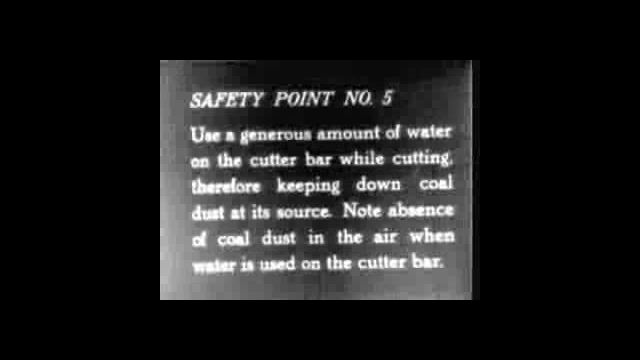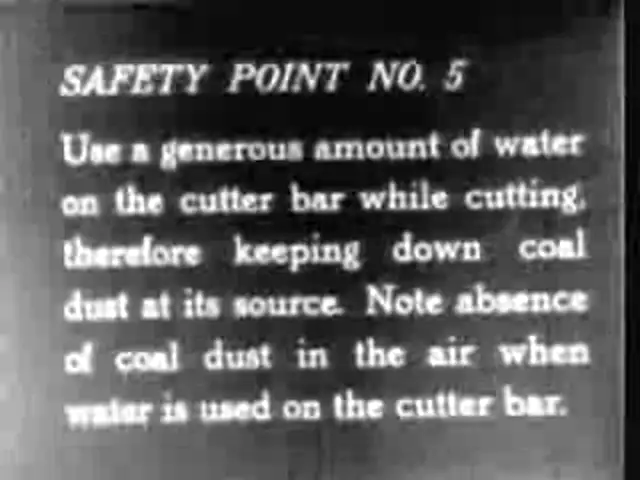12 Points of Safety 1926 US Bureau of Mines & Peabody Coal Company
12 anni
3.1K Visualizzazioni
Categoria:
Descrizione:
This film, 12 Points of Safety, produced in 1926 by the US Bureau of Mines with assistance from the Peabody Coal Company, lists twelve safety rules for coal miners and shows examples of these rules being followed to prevent accidents and explosions. Historically, coal mining has been a very dangerous activity. In the US alone, more than 100,000 coal miners were killed in accidents over the past century with more than 3,200 dying in 1907 alone. Hazards include mine wall failures, vehicle collisions; suffocation, gas poisoning, roof collapse and gas explosions. Firedamp explosions can trigger the much more dangerous coal dust explosions, which can engulf an entire pit. Most of these risks can be greatly reduced in modern mines. Unfortunately, the Peabody Coal Company has a history of explosions in its mines and safety violations. In 1982, the company was charged with tampering with the results of safety tests at its mine in Morganfield, Kentucky. The tests, made mandatory for all coal mines by the Mine Safety and Health Administration (MSHA), measured the amount of coal dust to which miners were exposed, since excessive amounts of the dust were linked to pneumoconiosis, commonly known as black lung disease. Peabody plead guilty to 13 charges of tampering with the test results in December 1982 and paid fines totaling $130,000. In its 2010 annual report Peabody reported that it had received 3,233 notices of violations -- over 9 a day from MSHA. Now known as the Peabody Energy, the company was originally founded in 1883. It began operating in the state of Illinois under the name Peabody Coal Company in 1890. In 1895, it began operations of its first mine, in Illinois and later expanded its operations in Illinois. In 1913, the company won its first long-term contract to supply Chicago Edison Company, the predecessor to utility Commonwealth Edison. Peabody Energy, now the largest coal company in the US and one of the largest in the world, is once again embroiled in controversy over shady treatment of employees. In 2007, Peabody Energy created Patriot Coal, a spin-off company comprised of Peabody's eastern US mines. Patriot was formed as a place to stash union mines in West Virginia and the Midwest, along with the significant pension and health-care obligations that these eastern mines held. Patriot was essentially a "company created to fail," to give Peabody Energy and Arch Coal (another major US coal company who sold union mines to Patriot) an easy way to avoid paying union pensions and health-care benefits, while continuing to profit from their giant, nonunion surface mines in the Powder River Basin of Montana and Wyoming. Patriot declared bankruptcy in 2012 and the pensions and medical benefits Peabody was obligated to pay their workers were put on the chopping block, just as Peabody had hoped. If Peabody succeeds, 10,000 retirees and another 10,000 dependents will lose the benefits promised them. For more on mine safety, go to the MSHA website at http://www.msha.gov/. (Marckdcatlin)




